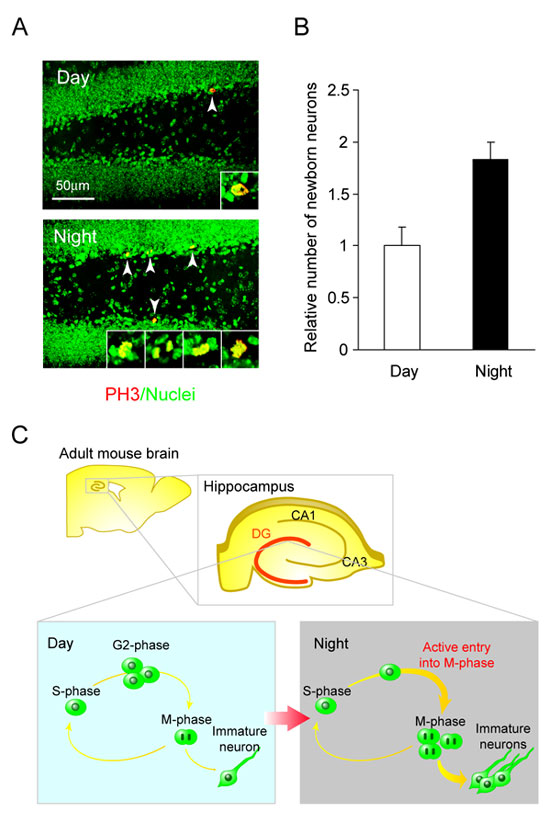Daily rhythm in hippocampal neurogenesis
Adult neurogenesis occurs in specific regions of the mammalian brain such as the dentate gyrus of the hippocampus and the subventricular zone of the forebrain.In these neurogenic regions, neural progenitor cells continuously divide and give birth to new neurons, but the regulating of adult neurogenesis remains largely unclear. Here we found that in the dentate gyrus of the adult mouse hippocampus, the number of dividing progenitors shows a day/night variation throughout the day, with a significant increase during the nighttime.The number of dividing progenitors is constant throughout the day in the subventricular zone, indicating the daily rhythm of progenitor mitosis is region-specific.Importantly, the nighttime enhancement of hippocampal progenitor mitosis is accompanied by a nighttime increase of newborn neurons.These results indicate that neurogenesis in the adult hippocampus occurs in a time-of-day-dependent fashion, which may dictate daily modifications of dentate gyrus physiology.
Program member
Yoshitaka Fukada (Department of Biophysics and Biochemistry, Graduate School of Science)

Figure (A) Enhanced progenitor-proliferation and (B) enhanced neurogenesis in the hippocampus during the nighttime. PH3 is a marker for M-phase cells. (C) In the dentate gyrus (DG) of the hippocampus, entry of neural progenitors into mitosis is promoted at night, thereby giving rise to more neuronal progeny.
